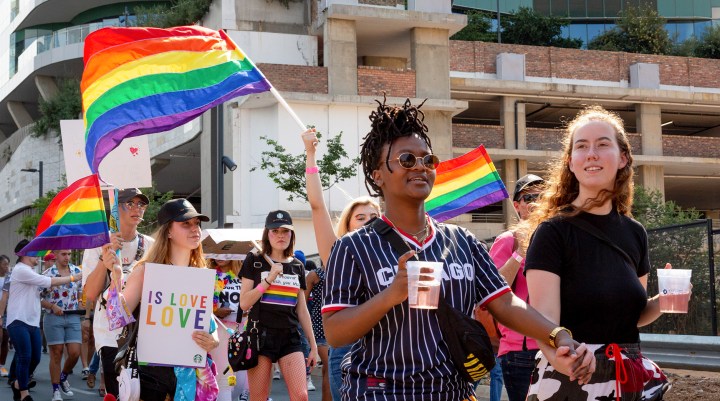POLICY
More laws are needed to protect rights of intersex and transgender people, say activists

Ensuring the rights of intersex and transgender people is about autonomy, dignity and their right to equality, said activists at a recent policy discussion. While they acknowledge legislation safeguarding their rights, they say this is not sufficient to protect them.
On 4-5 November a dialogue on intersex and transgender policy was hosted by the European Union and the South African government.
Addressing the event, Dr Tlaleng Mofokeng, UN Special Rapporteur on the Right to Health, said it was important that intersex and transgender people had the autonomy to make their own decisions and that obstacles to accessing healthcare needed to be removed, one of which was ensuring healthcare workers were trained in human rights.
Mofokeng said the issue of loaded language, such as the use of the word “normal” in relation to intersex and transgender people, had to be addressed, asking: “What is normal?”
She said the right to health was linked to the rights to equality, life, dignity and to not be tortured. Transgender and intersex people needed a positive and respectful approach to their health.
Mofokeng underscored that accountability is essential if the right to health is to be attained and that insisting on it helps to identify where progress is made.
She said that while intersectionality had transformational power in legal frameworks, it was merely a bridge to ensure that “we leave no one behind. We have to recentre the margins.”
The state has a responsibility to ensure the right to access to health for everyone, she said, adding that the bodily integrity of adults and children need to be safeguarded.
“To restore trans people’s dignity we have to see them as human,” said Mofokeng. “The right to self-determination is what is going to lead to freedom.”
In his keynote address, the Minister of Justice and Correctional Services, Ronald Lamola, said the Constitution should be seen as a catalyst for transformation and that “it is upon us to ensure that we achieve equality for all of us”.
Lamola acknowledged that when people are deprived of the ability to self-identify their gender, it results in socio-political and legal challenges. He was adamant that all government officials needed to go for gender sensitivity training, particularly officials at the forefront of providing services to people.
At the dialogue, the Deputy Minister of Home Affairs, Njabulo Nzuza, said that, “To avoid hindrances associated with a gender or sex-based identity system, the department is moving towards a gender-neutral policy regime.”
“DHA is making efforts to deal with transgender and intersex issues as well as the alteration of the sex description on the National Population Register (NPR) to ensure that records on the NPR are a true reflection of the sex, sexual orientation and gender of all people who live in the country, including intersex, transgender and non-binary persons.”
In the absence of legal gender recognition there cannot be a realisation of people’s entrenched human rights, said Sanja Bornman from the NGO Lawyers for Human Rights.
She said that the Alteration of Sex Description and Sex Status Act missed the lived reality of transgender and intersex people and that it needed to be replaced in order for the substance of the law to improve. Bornman stressed that making laws and policies was the beginning and that they had to be properly implemented.
Speaking on behalf of the Department of Home Affairs, Dr Aaron Ramodumo said: “We are quite aware of what needs to be done. As the status quo it has to gradually change.
“We shall and we will procedurally work towards the fulfilment of these rights. We have to tilt towards a direction that is lawful, acceptable and satisfactory.”
Nthabiseng Mokoena from Intersex South Africa pointed out that there was a veil of secrecy in hospitals around surgeries on intersex babies and that hospitals were not upfront about whether such surgeries were still taking place.
Mokoena said that intersex people are also subjected to forced hormonal treatment and sterilisation and that it is not just about their genitalia.
“This is about the right to consent and self-determination,” said Mokoena, adding that the current legislation alone is not enough for the protection and promotion of rights for intersex and transgender people. DM/MC




















 Become an Insider
Become an Insider
Help me I’m confused. Have they been banned from voting, driving, drinking beer, public places like parks, art galleries, shopping malls etc? What special privileges do I as a heterosexual male have that transgender, intersex people don’t have?